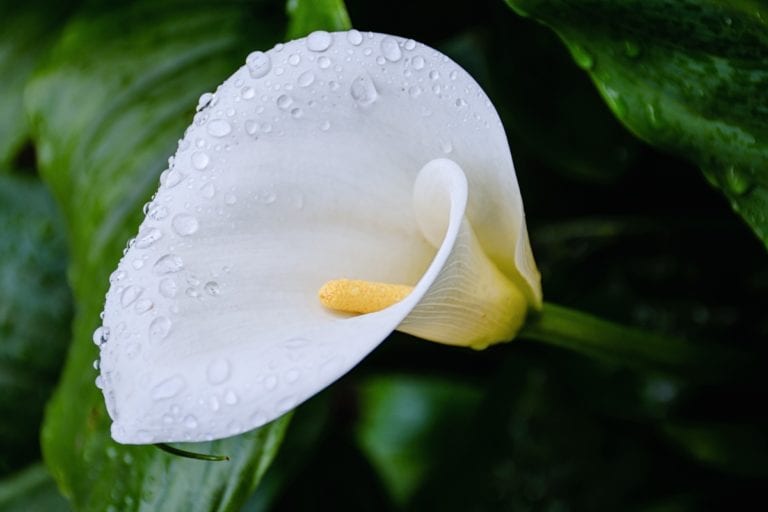Similar Posts

880th Week: Orienting to Steadiness
In these times of such challenge, I have found myself having to return to an underlying steadiness and calm again and again. This month, in my monthly posting of an audio meditation on my website, the focus is to attune to, call on, and embody the frequency of steadiness. I have understood and experienced steadiness to be a natural aspect of our deep core presence, the place in us that cannot be disturbed, no matter what may happen in our own lives or in the world at large. This doesn’t mean that we don’t register and respond to what’s happening within and around us. Instead, this place of steadiness that we carry deep inside offers an internal place of “refuge”, an aspect of our internal home base that is always steady, no matter what.
Another aspect of orienting to steadiness is that it allows us to contribute to the steadiness of our human collective consciousness. At this time, many countries around the world are embroiled in internal conflict between differing factions, religious and ethnic groups, between people fighting for rights and those in power working to limit freedoms of various kinds. So, when we look at what’s happening in our own countries, wherever we may live in the world, it’s helpful to remember that we are experiencing a global human-species crisis.
One thing I’d like to say about my belief in and experience of our human collective consciousness is that our moment-to-moment contributions matter. Whenever we experience a particular emotion or response, that experience is enhanced or intensified by the impact of all the people all over the world who are feeling the same way. Where we resonate matters, both in what we offer and in what we receive. For me, each time one of us is able to resonate with being centered, grounded, steady, or in any other way solid and stable in the presence of hurtful experience, I believe our experience offers to those who are teetering on the edge finding their center something like a foothold that helps them step into their own steadiness. We have an opportunity to support one another in every moment.
Read More “880th Week: Orienting to Steadiness”
2025 February Meditation
This month, we focus on noticing how our own radiating presence connects and interacts with the radiating presence of absolutely everything else. Also, we focus on becoming increasingly aware of the frequencies with which we resonate moment to moment. Because we participate in, and contribute to, collective consciousness, any frequency with which we resonate is automatically and spontaneously amplified.
Here’s the audio version of the meditation:
And, if you’d prefer a meditation with images of nature, here’s the YouTube version:

852nd Week: Wholeness and Shifting Foreground to Background and Background to Foreground
As I prepared to write this week’s practice in conscious living, it became clear that I needed to take two of my three feline family members to an emergency vet on different nights during the week. One of the things related to being in an emergency facility is that there is plenty of time to wait. It’s first come, first served and there’s no way to rush the attention needed in emergency visits.
To help keep my feline friends calm, I needed to draw on the calm part of myself—to bring the calm aspect of my wholeness into the foreground of my experience. This got me to thinking about offering a practice around the importance of embracing our wholeness so that we are able to remember that all aspects of being can shift from foreground to background and, also from background to foreground. In these emergency experiences, I remembered that I’ve developed a much deeper relationship with being calm and centered and that, even when this aspect of being drops into the background of my awareness, it’s always there to invite forward when I’m able to do so.
It’s helpful to remember that trauma can add an energy “punch” to some aspects of our wholeness so that when they move into the foreground of awareness we may find ourselves activated in ways we hadn’t expected and which we may have a hard time managing. A year-and-a-half ago, when one of my feline family members had a dental emergency, I found myself catapulted into a very young part of my wholeness. What I noticed this time around was that the efforts I invested over the last year dealing with what got pulled into the foreground last year made a noticeable difference, for which I have been very grateful. I was calm in a way I wouldn’t have predicted, given my previous responses.
Read More “852nd Week: Wholeness and Shifting Foreground to Background and Background to Foreground”
718th Week: Supporting Re-Centering
In times of personal and collective distress, it’s important to have ways to re-center ourselves as we move through daily life, as we hear news reports of terrible things happening to people and the planet, and as we face the ordinary challenges and stresses of everyday life. One of the things I do each morning is take time to settle myself, even if I don’t have time to meditate or do my regular attunement process. Each of us may have a different way to settle ourselves. The practice that follows organizes itself around what I think is the fundamental importance of not only having a reliable way to ground yourself but also to have a commitment to do so each day.
One of the reasons I feel it’s so important to re-center and settle ourselves each day is because of the powerful impact of collective consciousness on all of us. Read More “718th Week: Supporting Re-Centering”